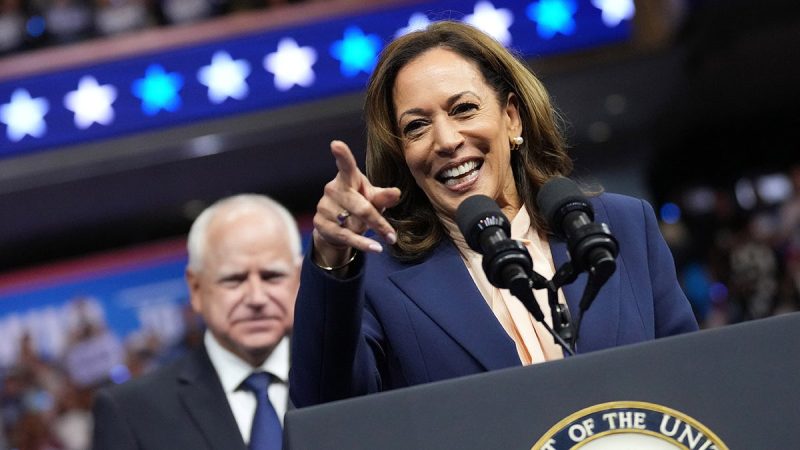1. How Will Democrats Address Foreign Policy Concerns?
One of the critical questions that Democrats must address this election day is related to their foreign policy strategy. With escalating tensions in regions like the Middle East, Asia, and Europe, voters are eager to know how Democratic candidates plan to navigate these complex relationships and promote stability on the global stage. Will they prioritize diplomacy over military intervention? How will they address human rights abuses in countries like China and Russia? These are pressing questions that voters will be considering as they head to the polls.
2. Can Democrats Unite a Divided America?
The deep political divisions present in the United States have only been exacerbated in recent years. Democrats must confront the challenge of uniting a country that is starkly polarized along ideological lines. How will they reach out to voters across the political spectrum and build bridges between communities with differing beliefs? Can they offer policies that appeal to a wide range of Americans and foster a sense of national unity? These questions are essential as Democrats seek to create a stronger and more cohesive nation.
3. What Is the Democratic Plan for Economic Recovery?
In the wake of the COVID-19 pandemic, the U.S. economy is facing unprecedented challenges. Democrats must outline a comprehensive plan for economic recovery that addresses issues such as job creation, income inequality, small business support, and the future of industries impacted by the pandemic. How will they stimulate economic growth and ensure that all Americans have access to opportunities for prosperity? It is crucial for Democratic candidates to present a clear and effective economic agenda that resonates with voters concerned about their financial well-being.
4. How Will Democrats Address Healthcare Reform?
Healthcare remains a top priority for many American voters, and Democrats must articulate their vision for reforming the healthcare system. Will they advocate for a public option, Medicare for All, or a different approach to expanding access to affordable healthcare? How will they address rising healthcare costs, prescription drug prices, and disparities in healthcare outcomes? Voters are looking for concrete proposals that demonstrate a commitment to improving the healthcare system and ensuring that all individuals have access to quality care.
5. What Is the Democratic Plan for Climate Change?
Climate change represents one of the most pressing challenges facing the world today, and voters are eager to know how Democrats will address this critical issue. What policies will they implement to reduce greenhouse gas emissions, transition to renewable energy sources, and protect the environment for future generations? How will they engage with the global community to combat climate change on a broader scale? These questions are paramount as voters consider the long-term implications of climate policy and the importance of sustainable environmental practices.
6. Can Democrats Deliver on Criminal Justice Reform?
The issue of criminal justice reform has gained significant attention in recent years, with calls for systemic changes to address issues of racial inequality, mass incarceration, and police brutality. Democrats must present a comprehensive plan for reforming the criminal justice system and promoting equity and fairness. How will they address issues such as police accountability, sentencing reforms, and community policing initiatives? Voters will be looking to Democratic candidates to deliver on their promises of meaningful change in the realm of criminal justice.
7. How Will Democrats Support Education and Student Debt Relief?
Education is a cornerstone of American society, and Democrats must outline their strategies for supporting students, teachers, and educational institutions. How will they address issues such as student debt relief, access to quality education, and support for teachers and schools in underserved communities? What initiatives will they champion to ensure that all individuals have the opportunity to pursue higher education and secure a brighter future? These questions are crucial as voters consider the impact of Democratic policies on the education system.
8. What Is the Democratic Vision for Immigration Reform?
Immigration has been a contentious issue in American politics, with debates surrounding border security, DACA recipients, asylum seekers, and pathways to citizenship dominating the national conversation. Democrats must present a coherent vision for immigration reform that balances national security concerns with compassion for immigrants seeking a better life in the United States. How will they address issues such as family separation, asylum policies, and immigration enforcement practices? Voters will be looking for a clear and principled approach to immigration that reflects the values of inclusivity and respect for diversity.
9. Can Democrats Restore Trust in Government and Institutions?
Trust in government and institutions has eroded in recent years, with widespread disillusionment among the American public regarding the efficacy and integrity of elected officials. Democrats must demonstrate their commitment to transparency, accountability, and ethical governance in order to win back the trust of voters. How will they address concerns about corruption, influence peddling, and abuses of power within the government? What steps will they take to restore faith in democratic institutions and ensure that the voices of the people are heard and respected? These questions are fundamental as Democrats seek to rebuild confidence in the political system.
10. How Will Democrats Engage with Young Voters and Diverse Communities?
Young voters and communities of color represent powerful constituencies with the potential to shape the outcome of elections. Democrats must engage effectively with these demographic groups and address their concerns and priorities. How will they mobilize young people to participate in the political process and vote in record numbers? What initiatives will they implement to address systemic inequalities and empower marginalized communities to thrive and succeed? These questions highlight the importance of inclusivity, diversity, and engagement in the Democratic platform as they strive to create a more equitable and representative democracy.

